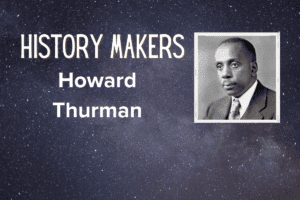
In the course of talking with white folks about race issues, there are some common statements white folks often make that are designed to either explain or defend their current attitudes and/or inaction on issues and concerns related to race. I would like to identify some of the more common rejoinders I have encountered, and offer some ideas about how best to respond when these types of statements are made.
I want to begin with two general comments. First, it is important to note that most people’s minds are not changed by lots of data and statistics. Anyone looking seriously at court records on numbers of arrest and convictions will quickly see there is clear discrepancy between how whites and persons of color are treated by the criminal justice system for the same offences. The evidence for government funding for public schools is clearly tilted in favor of predominantly white school districts. Data is clear, but data itself will not change a person’s orientation, because personal transformation primarily begins as an emotional response. Learning theorist Jack Mezirow called these life-changing emotional events “disorienting dilemmas.” So we must not only speak to a person’s head, but also to their heart. That is why personal relationships and personal stories are often the best place to start, and later the data can be brought in to expand on one’s point.
Second, there is a general confusion among many people when talking about racism between intent and impact. Very often when the topic of racism comes up, white folks immediately revert to justifying their motives and inner thoughts. Even the US legal system, when determining the extent of discrimination, primarily focuses on a person’s motivations for doing or saying something rather than the effects of their action. However, where the focus needs to be when talking about systemic racism is the impact of statements, policies and laws. While someone may not intend to do or say something racially discriminatory, if the effect of those words or actions is that a group people are unjustly treated, that effect makes it a racist act, regardless of intent. White people often defend themselves by saying they did not intend to hurt or discriminate; however, when they are made aware that the unintended consequences were discriminatory, they need to consider changing their approach so that their intent has the desired impact.
While someone may not intend to do or say something racially discriminatory, if the effect of those words or actions is that a group people are unjustly treated, that effect makes it a racist act, regardless of intent.
Colorblindness
Now to some common statements. One of the most common statements one will hear when talking to white folks about race is, “When it comes to race I am colorblind.” Variations of this assertion are statements like “I don’t think of [person of color] as Black [or Latino, Chinese, etc.],” or “There is only one race, the human race.” The intent of these statements are honorable, and often refer back to Dr. King’s vision that one day his children “would not be judged by the color of their skin, but by the content of their character.” However, underlying this statement is also the misguided belief and fear that if a white person talks about race or identifies someone by their race, that makes them racist.
Genetic research has shown that skin color, facial features, types of hair and other supposed visible markers of race are biologically insignificant. Yet one’s race can have a significant impact on quality of life because race is what sociologists call a social construct, a socially designated category that has real consequences for the quality of people’s lives in North American society. To not acknowledge someone’s race is to deny the reality of racial disparity and the history of slavery, Native American removal and genocide, Japanese internment camps, the Holocaust, and other racially-based oppressions that have been central to our history. To deny race is to ignore that most people of color face more barriers to success and flourishing than most white people. It is not only okay for white folks to acknowledge race, but it is essential if we are ever to achieve deeper cross-racial understanding.
It is not only okay for white folks to acknowledge race, but it is essential if we are ever to achieve deeper cross-racial understanding.
White Privilege
Closely related to colorblindness is the tendency for white folks to object to the idea that they enjoy racial privilege—when the topic of privilege comes up, whites often recount real struggles and the hard work they had to do to get where they are in life. The concept of white privilege was first elucidated by Dr. Peggy McIntosh’s essay, White Privilege: Unpacking the Invisible Knapsack, in which she lists 50 concrete ways white folks enjoy benefits not always available to people of color. As one looks closely at the list, most of them refer to challenges whites don’t face, and actually don’t even think of as a challenge. For instance, #8 on the list is “I can be sure that my children will be given curricular materials that testify to the existence of their race” and #39 is “I can be late to a meeting without having the lateness reflect on my race.” The point is that the absence of a judgement or a barrier is a privilege that a person of color does not always enjoy.
When talking about privilege, it is helpful to think about concrete experiences in your life that illustrate privilege. Let me share a personal example. It is frequently reported that people of color receive much stricter scrutiny and harassment when stopped by the police for routine traffic violations. They often will be asked to step out of the car, be frisked, and can even have their car searched. One black friend of mine spent three days in jail after being stopped for a broken tail light! By contrast, in the last 10 years I have been stopped four times by the Philadelphia police for traffic violations. I have never been asked to step out of the car, been frisked, or searched. In fact, I did not even receive a ticket for any of those violations, though I knew I was clearly guilty each time. I can just think of myself as lucky, or I can recognize that my white maleness affords me a privilege I very likely would not have enjoyed had I been a person of color. Sharing a story like that opens a door to understanding that is more effective than just citing statistics, or arguing about what privileges one does or does not enjoy .
Innocence by Association
Another response white folks often give is what I call innocence by association. This response usually takes the form of statements like “Some of my best friends are Latino [or Black or Chinese, etc],” or “I work [or go to school] with a lot of people of color.” For many folks in the Millennial generation and younger, this often is true. As the demographics of our society continue to change, incidental contact, and even relationships, among people of different races and ethnicities are far more prevalent than for the Baby Boomers of my generation. In fact, educational and workplace settings are often the first places many white people encounter and interact with people who are racially different than them. Even so, where we live, where we worship, the people we socialize with, and the places we frequent tend to be as segregated as they were when racial intermingling was legally and culturally forbidden. The reasons for this segregation are complex and can be attributed to both systemic forces and personal choices made by people of all races: sometimes people prefer to be with “their own kind,” and other times they are forced to. This is as true for whites as it is for people of color.
The critical issue that I see is whether or not in these personal and professional relationships, race is ever acknowledged or discussed. I have been continually surprised by how often white people who claim to have friends of a different race have never talked to that person about their experiences as a racialized person. White folks often respond by saying “It never came up,” or “ We are such good friends we never felt a need to talk about race.” How good can a relationship be if in the aftermath of Trayvon Martin’s shooting, the shooting and uprising in Ferguson, the shooting at Emmanuel church in Charleston, or the conflicts in Charlottesville, race did not come up in discussion? As tragic as these events and others like them are, they certainly provide the opportunity to explore the meaning and experience of racism in our time.
My question to white people who claim to have friends of color is: have you talked to them about race and racism? If not, why not?
My question to white people who claim to have friends of color is: have you talked to them about race and racism? If not, why not? That relationship, if truly honest and genuine, provides a white person insights that all the data in the world will not convince. The topic of race may not have come up in the relationship because the person of color did not trust the white person to take his/her experiences and perspectives seriously. White folks must ask themselves if they are willing to hear something that might contradict many of the beliefs about North American culture and society they hold to be true. Persons of color must consider race every time they walk into predominantly white situations, to have what W.E.B Dubois called a “double consciousness” just to be able to function effectively. Whites face no such challenge. Having a person of color in the next cubicle or across the table at lunch is a great opportunity, but true racial understanding is not transmitted by osmosis, it must be consciously addressed and pursued.
Drick Boyd is Professor of Urban and Interdisciplinary Studies at Eastern University and the author, most recently, of Paulo Freire: His Faith, Spirituality and Theology. Drick’s areas of interest include urban theology, race and ethnic relations, leadership, social activism, and popular education; he is particularly focused on community issues of gun violence prevention, urban education and interfaith and inter-racial coalitions for addressing city issues. Married with three adult children, he is a cycling enthusiast, a sports fanatic, a lover of books, and a guitar player, who enjoys spending time with colleagues, friends and family.


